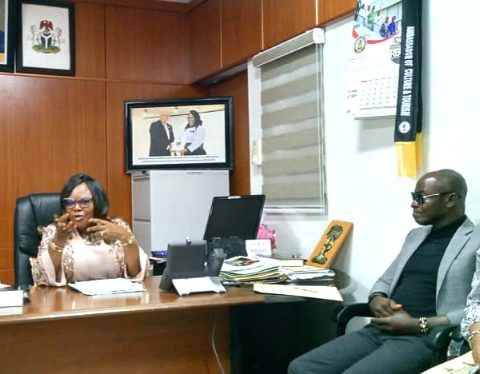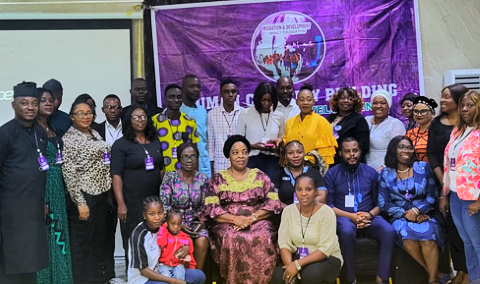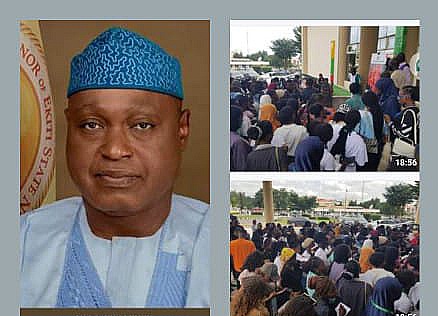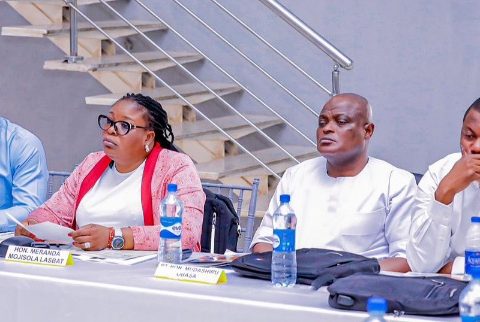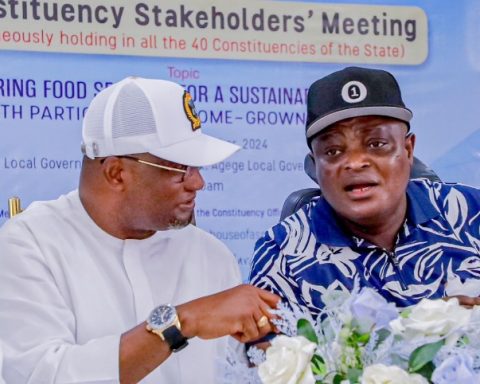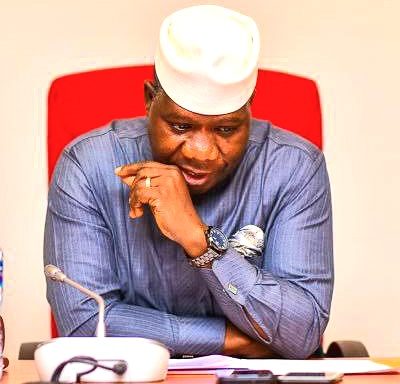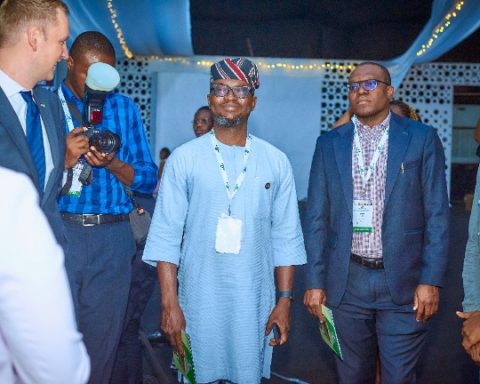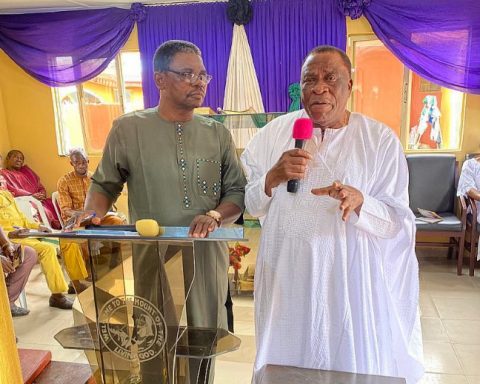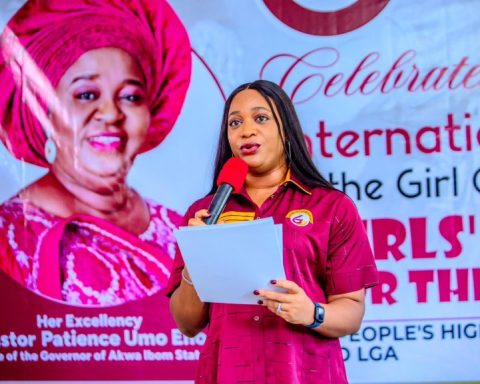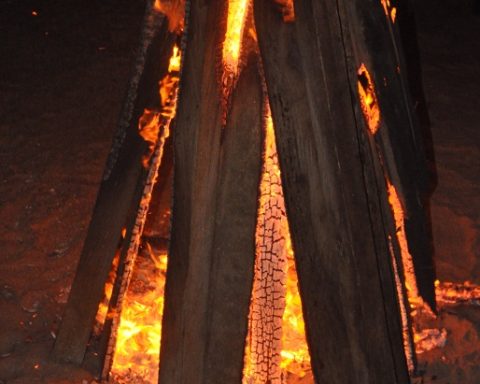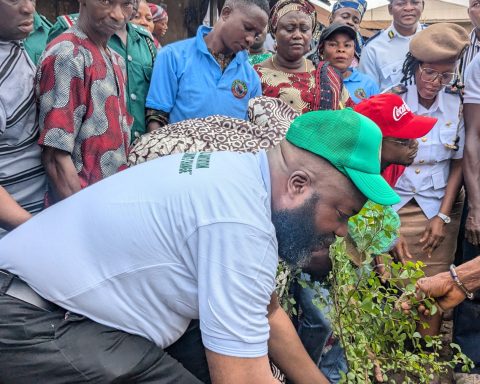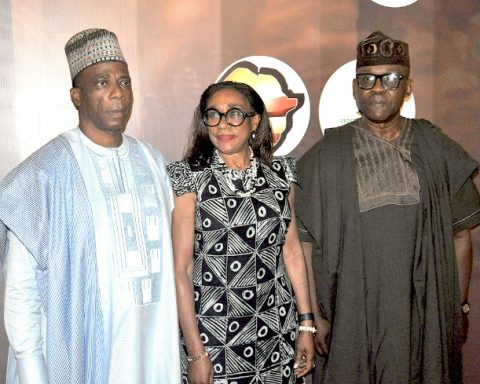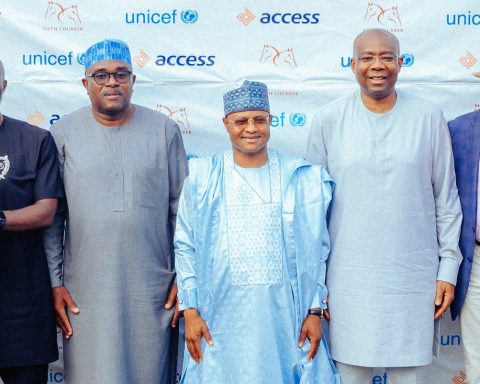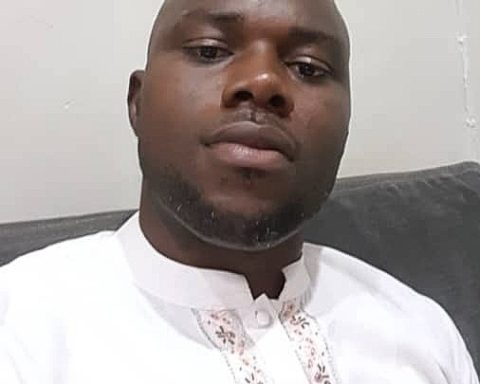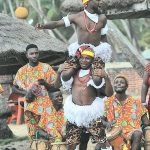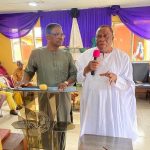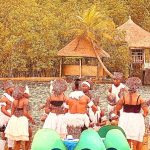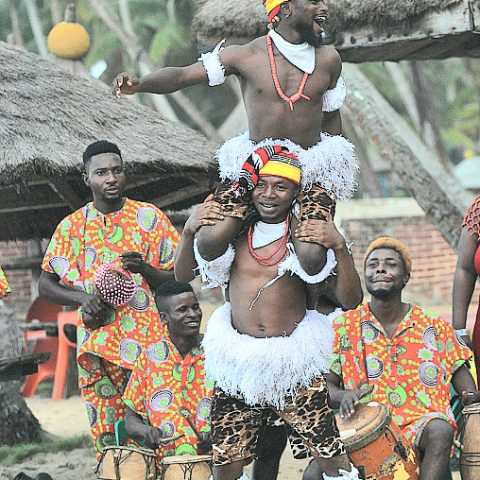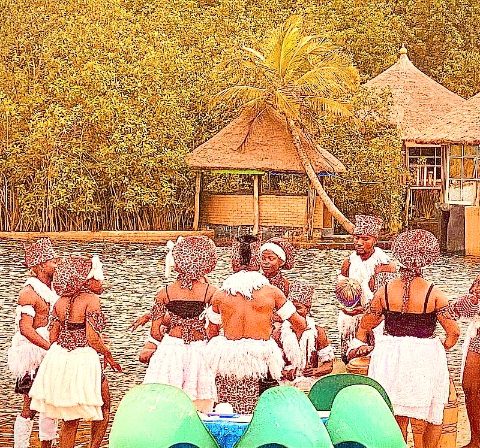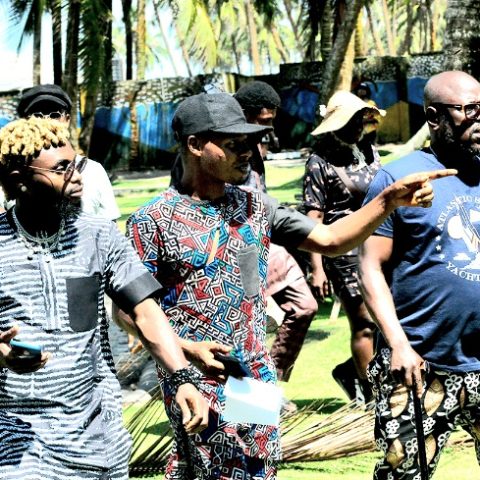
Tourism Icon Otunba Olawanle Akinboboye while presenting his tourism product for week 48, has pointed out that till date, all the Festivals he had presented as Tourism Products, have all come from the South – West of Nigeria. He explained that this was because they were the festivals he had grown up with and so was comfortable to speak about.
However, he was aware that Nigeria, with its rich and diverse cultural heritage, holds traditional festivals in all nooks and crannies of the country. This has created the potential for tourism products that could be sold to the world.
He therefore feels that it would be appropriate to now speak about a festival that has its roots in South – East Nigeria and which, strangely enough, has a similar theme with an internationally known festival that takes place annually in Mexico.
The Mexican festival featured dramatically in one of the movies from the James Bond spy movie franchise (Spectre). The concept behind the festival was also the subject matter of a number of other movies; including two animated family focused movies; ‘The Book of Life’ and ‘Coco’.
Otunba Akinboboye noted that the festival he was referring to was ‘The Day of the Dead (el Día de los Muertos) ‘a Mexican traditional festival that combines the ancient Aztec custom of celebrating ancestors with All Souls’ Day, a holiday that Spanish invaders brought to Mexico starting in the early 1500s.

The Aztecs’ believed that, after death, the soul travels a journey of seven years. Consequently, each year and in honour of this tradition, families in Mexico provide food, water, and resources at their deceased relatives graves to help the deceased endure their tough journey.
The festival, which is celebrated on 1 and 2 November, is like a family reunion—except dead ancestors are the guests of honor.
Families offer food, drinks, flowers and personal mementos to honor and welcome the spirits of the deceased.
According to tradition, the gates of heaven are opened at midnight on 31 October and the spirits of children can rejoin their families for 24 hours. The spirits of adults can do the same on 2 November.
By celebrating children and adults on different days, el Día de los Muertos acknowledges the different stages of life and provides a specific focus for each day.
In recent years, the tradition has developed even more due to its visibility in pop culture and its growing popularity in the United States.
Inspired by the 2015 James Bond movie Spectre, which featured a large Day of the Dead parade, Mexico City held its first-ever parade for the holiday in 2016.
The most prominent symbols related to the Day of the Dead are calacas (skeletons) and calaveras (skulls). During contemporary Day of the Dead festivities, people commonly wear skull masks and eat sugar candy molded into the shape of skulls.
Otunba Akinboboye noted further that, in 2023, tourists who attended the Day of the Dead Parade in Mexico City generated US $45.5 million for the Mexican economy from their use of hotel and tourist services. The festival also generated numerous jobs from activities that included souvenier creation, costume making, confectionary etc.
Otunba Akinboboye revealed that he found it fascinating that a local tradition had over less than a decade evolved into and been customized as an international tourism product that generates significant economic income and job opportunities for Mexico and Mexicans.
Otunba Akinboboye then noted that he had recently been made aware that, in the South East of Nigeria , the Awuru Odo Festival, which is celebrated in Enugu State, has the same theme as the Day of the Dead.
This particular Festival is held to mark the return of the dead (odo) to those still living and during the course of festivities there are masquerades and dancing which provided pomp and ceremony to the event.
Odo, which in Igbo language means “the spirit of the dead” refers not only to the festival, but also the institution which administers the process and the actors who represent the dead in for form of juju or masquerades.
The festival, which last a period of 5- 6 months occurs every two years, is conducted in stages over a period of six months. It commences with an odo returning festival called “nwanua” or Ovuruzo . This event involves racing contests throughout the various towns involved in the festival . The nwanua is held serially in each of the thirteen villages in Aku for thirteen consecutive four-day weeks.
During the season of Odo in each of the towns, there are frequent occasions of merry-making, feasting and “Odo” musical entertainments. After six long months (from February to July), a date is fixed for the homeward departure festival.
The odo departure or “home-going festival” is held in July ending or early August for three days know as Afor, Nkwo and Eke. These three days are especially important because the vital ceremonies of the long festival are carried out within such days.
Nkwo is the climax of the feast and is the day on which the odo (represented by juju or masquerades) leaves the town for the spirit world following a laid down route that goes right round the town and terminates on a hill.
The odo is accompanied by all the young men of the town. When they reach the hill they leave the odo so it can vanish from there to Nshi n’Amoke ‘the land of the spirits.’
Aged men, young boys and guests stand on both sides of the route to this hill watching the processing Odo and the men who accompany them as they dance to rhythms depicting Odo musical entertainment. Each village takes a turn in dancing along the route. The dancing continues until the last great’ “Odo” called “Ezhelim” comes along the route and closes the function.
Otunba Akinboboye said he had been told there are three Juju or Masquerades who mingle freely with everyone during this final festival irrespective of their gender. These masquerades are Odo Achi, Oriokwu and Ayi. Odo Achi is elderly and the most responsible juju in the town. It is also the tallest juju.
Otunba Akinboboye apologized if any of his descriptions of the festival were inaccurate in any manner and admitted he was relying on what he had been told by others
He however felt that, similar to what occurred in Mexico, there was scope to package the last three days of the Odo Festival or the ‘home going’ portion of the festival into a tourism product that would form part of Nigeria’s tourism offerings to domestic and international tourists.
By focusing on upgrading and repackaging the festival into an event that could be sold to tourists, the local communities would earn income and jobs could be created for their youths.
He emphasized that it would once again be a situation where one is taking advantage of our advantages.
Otunba Akinboboye hopes that this article would provoke some thought among young tourism entrepreneurs based in the South East of Nigeria who should be proud to present this unique festival to the world and to use it to create economic opportunities for people based in rural communities.


